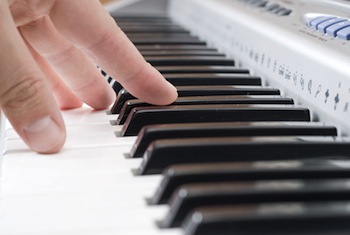If you want to practice improvisation, you need to work quickly.
____________
“The Essential Secrets of Songwriting” 6-eBook Bundle comes with this FREE eBOOK: “From Amateur to Ace: Writing Songs Like a Pro”. 7 Songwriting eBooks for $37
_____________
 There is a sense of improvisation and spontaneity that is part of music that is performed well. This is particularly true of music in the popular genres of pop, rock, country, and so on. Just a small example: if a song uses a guitar solo in a middle 8, we expect to hear that solo sound a bit different every time we hear the song done live. We’ve come to expect that spontaneous creation is an important part of the art form.
There is a sense of improvisation and spontaneity that is part of music that is performed well. This is particularly true of music in the popular genres of pop, rock, country, and so on. Just a small example: if a song uses a guitar solo in a middle 8, we expect to hear that solo sound a bit different every time we hear the song done live. We’ve come to expect that spontaneous creation is an important part of the art form.
That improvisatory and spontaneous quality of music is something we’ve come to expect and revere in the writing of it as well. We feel a deep admiration for a song that just appears “out of nowhere”, as if it pre-existed somehow, and we are merely the vessel through which the music takes final shape (not to be overly poetic about it).
We may respect good songs that take weeks or months (sometimes years) to get themselves into a final form. But there is something special about songs that happen quickly, as the result of an improvised activity or process.
But that begs an important question: If we acknowledge the importance of impromptu artistry as an important quality in the writing of music, how do you practice that?
For songwriters, spontaneity does not mean lacking in principles or guidelines. It does not mean a complete abandonment of anything you’ve ever learned about music or songwriting. In short, it is possible practice being creative.
In fact, if you aren’t practicing your songwriting skills, your music is doomed to lack creativity and impulsiveness. Since practicing songwriting allows (and even requires) you to improvise and create things quickly, you tap into parts of your creative mind that have the positive effect of extending your wealth of musical ideas.
In songwriting, practicing means focusing on small tasks instead of always feeling the need to create full, complete songs in every writing session. Practicing means things like the following:
- Set the timer for 1 minute, and see how many words you can create that relate to the word, “magical.”
- Set the timer for 5 minutes, and see how many melodies you can create over the following progression: C Am Bb F
- Set the timer for 2 minutes, and see how many lines of lyric you can create that could follow this one: “Didn’t know what I was doing, my defences were down/ …”
Any songwriting practice you do should incorporate speed as an important requirement. That’s because working quickly forces your musical brain into a state where improvisation happens naturally.
So can spontaneity be practiced? Yes, and in fact, that’s the only way you can tap into your full potential as a songwriter.
______________
 Written by Gary Ewer. Follow on Twitter.
Written by Gary Ewer. Follow on Twitter.
“The Essential Secrets of Songwriting” 6-eBook Bundle looks at songwriting from every angle, and has been used by thousands of songwriters. How to use chords, write melodies, and craft winning lyrics. $95.70 $37.00 (and you’ll receive a FREE copy of “From Amateur to Ace: Writing Songs Like a Pro.“)









